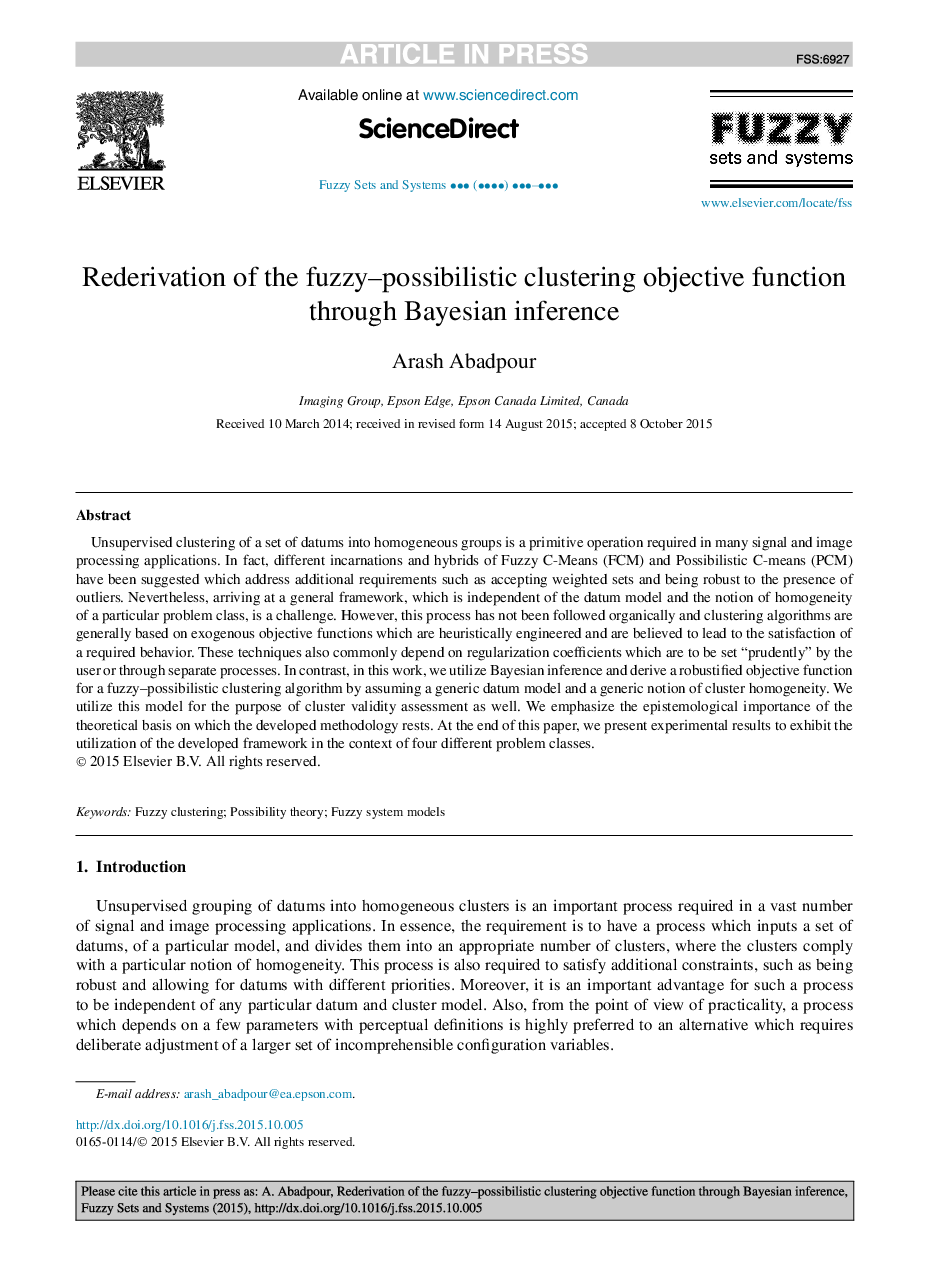| Article ID | Journal | Published Year | Pages | File Type |
|---|---|---|---|---|
| 4944037 | Fuzzy Sets and Systems | 2016 | 25 Pages |
Abstract
Unsupervised clustering of a set of datums into homogeneous groups is a primitive operation required in many signal and image processing applications. In fact, different incarnations and hybrids of Fuzzy C-Means (FCM) and Possibilistic C-means (PCM) have been suggested which address additional requirements such as accepting weighted sets and being robust to the presence of outliers. Nevertheless, arriving at a general framework, which is independent of the datum model and the notion of homogeneity of a particular problem class, is a challenge. However, this process has not been followed organically and clustering algorithms are generally based on exogenous objective functions which are heuristically engineered and are believed to lead to the satisfaction of a required behavior. These techniques also commonly depend on regularization coefficients which are to be set “prudently” by the user or through separate processes. In contrast, in this work, we utilize Bayesian inference and derive a robustified objective function for a fuzzy-possibilistic clustering algorithm by assuming a generic datum model and a generic notion of cluster homogeneity. We utilize this model for the purpose of cluster validity assessment as well. We emphasize the epistemological importance of the theoretical basis on which the developed methodology rests. At the end of this paper, we present experimental results to exhibit the utilization of the developed framework in the context of four different problem classes.
Related Topics
Physical Sciences and Engineering
Computer Science
Artificial Intelligence
Authors
Arash Abadpour,
